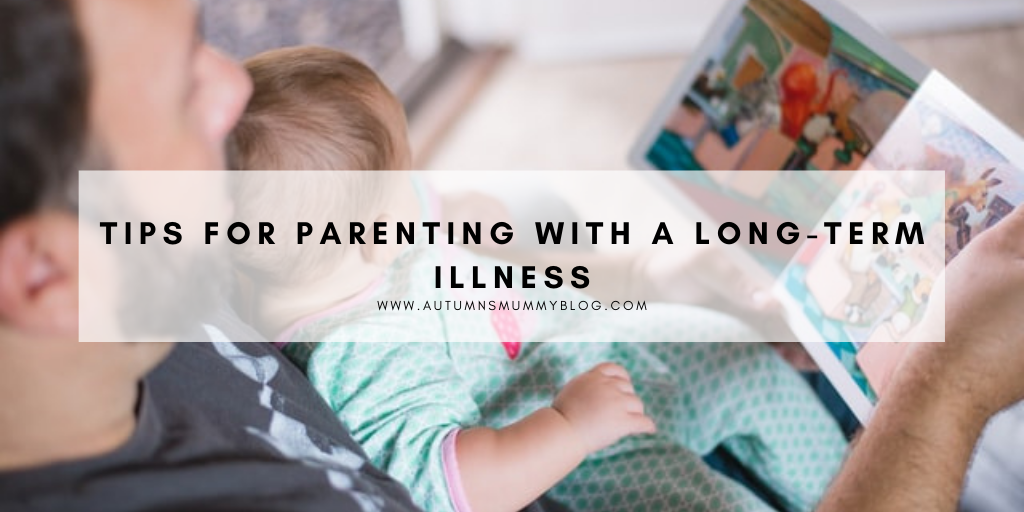Collaborative Post¦ If you have a long-term illness, whether it’s a chronic illness, mobility issues, or a mental health condition like anxiety, parenting can be even more of a challenge. This can be hard, as any parent knows that caring for a small child is challenging enough, without adding more difficulties on top. You can use these helpful tips to help you to turn your challenges into more positivity, hope, and little wins. It is even more important for you to be able to focus on the incredible gift that has been given to you as a parent; your child. Make sure that your children feel loved, safe, and secure, even on days when you’re finding things tough. Even you’re unwell, you can create an atmosphere of hope, address any concerns your children have with patience, and stay positive.

Image – free for commercial use
As a parent living with any kind of long-term or chronic illness, you are on a 24-hour shift at work, with no breaks, no sleep, and no pease. Just when you think you need to take a break from things, the demands of parenting seem to take over, whether to need to intervene in a squabble between the kids, clean the kitchen, cook dinner, pick the kids up from school, drop them off at football practice, play with the baby, or something. All of this can soon start to take a toll on your physical, emotional, and mental well-being. The last thing you need on the days where you feel the most unwell is a messy, loud, and chaotic home. Unfortunately, all these things are often the reality of having children and being a parent. The most important thing is to learn to accept it and find the best ways to cope with the daily demands of parenting.
Dealing with chronic illness as a parent? Here are the things that you need to remember:
You come first
If you don’t already know how to properly practice self-love, then you need to learn how to do it. Putting the focus on yourself might sound a bit selfish. You might worry that it is a bit counter–intuitive to put your needs before the needs of your children or even your spouse, but you need to understand that is an important thing that you will need to do if you are going to manage to maintain the best levels of health that you can. After all, you can’t look after anyone else if you can’t look after yourself. Remember, you can’t drink from an empty cup, so keep your cup filled. Caring for yourself is a good behavior to model for your children too.
Create time for relaxation
What do you find relaxing? Watch a movie, read a book, arrange a night out with your friends or a date with your partner, watch TV, take a yoga class, try meditation, or just get to bed early. Whatever relaxes you, make time for it. If you try to be super-parent and be on all the time, you will just end up getting burnt out if you try to do everything all the time. You must learn to delegate roles and ask for help from others if you can. For example, when it’s time for bed, ask your partner to put the children to bed and read them their bedtime stories, while you finish that chapter of the book you’ve been trying to read all week. Ask the grandparents to babysit so you can have lunch with your spouse or get to the gym. It’s ok to need help.
Adopt a positive mindset
Be thankful and grateful for all the good things that you have in your life. Make a habit of counting your blessings and name them one by one. Even when things are tough, there is plenty to be thankful for. Try to learn to stop dwelling on the bad things that have happened to you in the past or that are happening now. Of course, this can be easier said than done, but it just takes practice. It can help to remember that you are not your illness. Your ability to stay positive and be thankful for even the smallest things in life, like a nice cup of coffee or your baby smiling at you, can change your perceptions on a daily basis. This is a skill that takes practice and it can be done if you really try.
Learn to accept the cycle of unpredictability
Chronic health conditions are often unpredictable so it is essential to learn to accept what you cannot change or control. One day you might wake up and feel like you could take on the world but the next day you might feel as though the sky is falling in and nothing will ever be good again. This is one of the cruelest parts of chronic illnesses. As a parent living with a chronic or long-term health condition, this is definitely going to bring you some stress and make you feel frustrated more often than other parents. You might often wish that you could do more, feel better and be more like every other parent, but you need to remember that this could happen to anybody. Letting yourself feel guilty will only make you feel worse than you already do. The needs of your children are endless, huge, and constant, but your physical well-being may not be. Understanding this fact, accepting it, and helping the rest of the family around you to accept and understand this too can go a long way in lowering your stress levels.
Join support groups and ask for help
Asking for help is a brave thing to do, so never feel guilty if you need more support. Even parents who aren’t dealing with illness need some help sometimes. Reaching out to other people who are dealing with similar struggles to you can give you the emotional support that you need to get through the most difficult days and can be a great source of encouragement and advice.
You can find support groups online or in person. Look for Facebook groups, forums, or in-person meet-ups in your local area for parents with long-term or chronic illness. You might be able to find a group for parents with your specific condition. You might even be able to get helpful tips, like ideas for self-care, or practical suggestions.
It is very important to find or start a local support group in your area, as this can also be a great place to get some much-needed support and could be somewhere to make some great new and understanding friends. You don’t need to struggle on by yourself. Even if your family and friends are supportive, it can really help to speak to someone dealing with the same thing as you.
Seek help from a mental health provider
Stress is a fact of life for all parents, but if you are suffering from a chronic illness and trying to balance this with your job as a parent, you might be under even more stress than others. There is no shame in asking for help and guidance from a mental health professional if you need more help. This could be in the form of seeing a psychologist, counselor, therapist, or other professional. They can teach you the tools to cope more effectively with the daily challenges of parenting.
Disclosure: This is a collaborative post.
